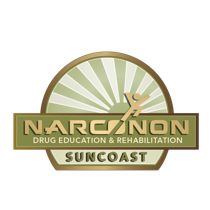A Local Epidemic of Laced Heroin Caused Skin Necrosis

I came across quite the graphic depiction of an addict’s arms the other day, the flesh on the arms appearing to have been eaten away like something out of a zombie film. I had never seen anything like it, and it stemmed from a local batch of laced heroin which had been cut with something called Rizzy Powder. (https://www.ncbi.nlm.nih.gov/) This is a substance commonly used to dye flowers and make them stay fresher for a longer period. Once injected by the unsuspecting heroin addict, however, it caused necrotic skin lesions eating away at the flesh. The strangest thing I found about the story is that all the other functions in the victim’s body appeared normal. There were no other symptoms, not even any pain or itchiness. I can only imagine what went through their minds when they looked at the horror on their arms.
This is one of the most dangerous problems facing addicts today. They blindly trust their drugs, they trust their dealers, and they trust that it will not be them. That false trust stems from what they are seeking, the high, the comfort, the relief, the warmth. Anything to slip away from the sickness, the darkness, the despair, the desperation, if only for a moment. There is no contemplation of the contents other than the main ingredient they are seeking, not if it will provide that escape, even though it is the very thing causing the prison in which they feel the need to escape. The consequences, the damages, the risks, all an afterthought. When all that drives the wants and needs of an addict and their desire to use, how much consideration do you think is given to what else could be in the drugs they are mainlining into their veins or snorting up their noses?
Manufacturers of these street drugs know this. They also know that something like a little skin necrosis or an overdose will not be enough to scare an addict into quitting, at least not immediately. Even if it is, or in the tragic case of an overdose, there will still be a line out the door. Repeat customers are their business, and the cheaper and stronger their product is, the larger the bottom line. As sad as it may be, something like an overdose can actually drive the product, because addicts gain the perspective that it must be ‘good stuff’, all while maintaining the false sense of security that it will not be them. I am not of the belief that addicts, in general, want to die or do not care if they do, but I am of the belief that drug dependency severely limits forward-thinking and rational decisions when it comes to what they are ingesting into their bodies.
How do we combat this problem when addicts are unwilling to help themselves and seek treatment? I think it starts with a willingness by those who do not struggle with addiction to change their perspectives on how best to solve the addiction crisis. Addicts need our help, and a good start would be a larger percentage of our society willing to help someone who may happen to be in their direct line of sight. A lot of families and loved ones are hurt by the actions of the addict in their life. I understand this, and one of the easiest ways to find the motivation to help someone who may have hurt you would be to change your perspective on what you are trying to do. Helping someone can be far more difficult if you are attempting to find the willingness to help the person they have become through addiction. Instead, aim to help them from the perspective of getting back the person they were before addiction took over. With that mindset and acting out of love rather than anger, maybe we can start to push back and make progress against our addiction crisis. If you or anyone you know is seeking help, please reach out.
